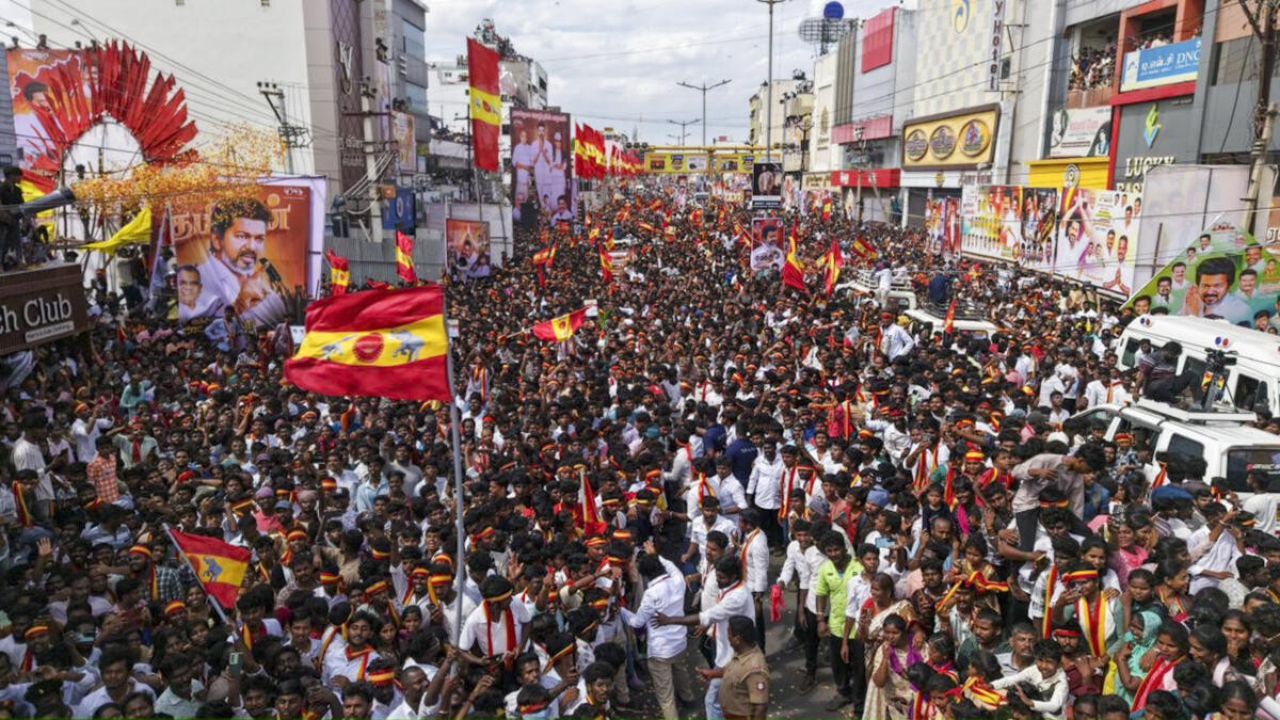The Supreme Court on Monday, 13 October, directed the Central Bureau of Investigation (CBI) to take over the probe into the Karur stampede in Tamil Nadu, which occurred during a political rally organised by Tamilaga Vettri Kazhagam (TVK) chief Vijay. To ensure transparency, the court appointed a three-member monitoring committee headed by retired Supreme Court judge Justice Ajay Rastogi, along with two IPS officers from the Tamil Nadu cadre who are not native to the state.
A bench of Justices JK Maheshwari and NV Anjaria said the committee will oversee every stage of the CBI’s inquiry. “It may undertake the enquiry of any matter incidental to the stampede and devise its own procedure as per the directions of the judge. The CBI is directed to submit monthly status reports before the committee,” the bench observed.
Displeasure Over Petition Filings
The order came after the court was informed that multiple petitions had been filed in the names of victims’ families without their knowledge or consent. During the hearing, several family members joined virtually to allege misuse of their identities.
Among them, the wife of Panneerselvam Pitchaimuthu, who lost his child in the tragedy, said her name was used in a petition without her consent. Another petitioner, who lost his partner, alleged a local AIADMK leader made him sign papers under the promise of a government job. Similarly, the mother of a 13-year-old victim said her estranged husband filed a petition despite having no contact with the family for decades.
Taking note of these claims, the bench said, “If that is the situation, we will take cognisance.”
Criticism of High Court Handling
The Supreme Court also raised concerns about how the Madras High Court handled the matter. It noted that a single judge had taken suo motu cognisance of the stampede, ordered the constitution of a Special Investigation Team (SIT), and made observations about TVK without including the party as a respondent.
The apex court criticised this approach, pointing out that Karur falls under the jurisdiction of the Madurai Bench of the Madras High Court, and therefore, the principal bench had no grounds to entertain the case. It also questioned why the single judge expanded the scope of the petitions and referred the matter to an SIT without adequate material.
“This recourse ignores propriety,” the bench remarked, directing the Registrar General of the Madras High Court to explain how the matter was registered as a criminal writ petition and to place the order before the Chief Justice of the High Court.
Pending Issues and SOP for Political Rallies
In addition to the probe, the Supreme Court said petitions seeking the formulation of a Standard Operating Procedure (SOP) for political rallies would be assigned to a division bench for further hearing. The judges emphasised that all facts about the tragedy must come to light: “Once the probe is completed, it will clearly reveal who was at fault.”
Background of the Case
The Tamil Nadu government had earlier set up a one-member commission under retired High Court judge Aruna Jagadeesan to investigate the stampede. Meanwhile, the Madras High Court ordered an SIT inquiry and made sharp observations against TVK and its leader Vijay.
TVK challenged these remarks in the Supreme Court and opposed the SIT probe, while victims’ families and BJP lawyer GS Mani sought a CBI investigation. Last week, the apex court reserved its order after hearing five connected petitions.
Next Steps
The Supreme Court has now adjourned the case, allowing the Tamil Nadu government more time to respond to allegations over unauthorised petition filings. Deadlines for related submissions have also been extended. Hearings on pending issues, including SOP guidelines for rallies, will continue.

